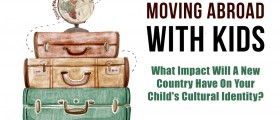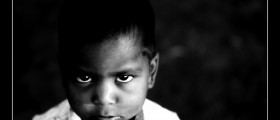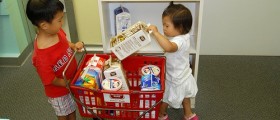
Fatherhood is commonly considered to bea general, universal term, clear and interchangeable in all culturesaround the globe. However, this is not quite so since a father figureis something created in a specific culture.
Thus, every separate culture has adifferent form of a father figure, with set rules and expectedbehavioral patterns of a male in a family. If you are interested inthese peculiar forms of cultural diversity, the following lines willgive their best to provide you with additional information on thesubject.
Culture and Fatherhood
If we observe the fatherhood from atypical Christian perspective, we notice that Western families whoconsider themselves Christians usually value the fatherly wisdom inthe household, praying for that characteristic to be present withinthe male parent. On the other hand, people from Africa usually prayfor providence and grace, leading the fathers of these areas towardspromoting education for their children, adhering to their physicalneeds.
Of course, such attitudes are notexclusive and there are many cultures which contain a great diversityregarding fatherhood. For example, many members of the Africanculture and heritage function in societies where there are more thanone father present in the family. Namely, the biological father isthe “main” male person having this name. However, uncles are allconsidered to be fathers of their nephews and nieces, being involvedin their lives significantly and possibly even taking the place ofthe biological father, should he die.
The typical Western family, on theother hand, functions differently. Of course, relatives do influenceeach others lives. Yet, the importance of the father figure is nottransferable. Rather, it is connected to just a single person in thewhole family.
Social status affects the father figuretoo. Recently, in Uganda, there was a case of a father clubbing histwo children to death, hanging himself afterwards. Later, during thepolice investigation of this occurrence, the police concluded thatthe main culprit behind this tragedy was poverty. Thus, in somecultures, fathers who are not capable of providing for their familymay not consider themselves fathers at all.
Nevertheless, generally, fathers carrythe role of being the providers and protectors in most cultures.Additionally, even though these characteristic are commonlyneglected, fathers are counselors, spiritual leaders and bearers ofwisdom. Now, obviously, in practice this may or may not be so,depending on each male individual who has one child or more childrenof his own.
Importance of Being a Father
The absence of fathers in households isa common matter of concern, especially in modern families wheredivorces and separations of the spouses are not considered strange orwrong at all. The problems was first noticed during the mid 1990s, atleast as far as the US is concerned.
Basically, according to a report that afatherhood revival movement of the times exposed, 40% of Americanchildren were living in families which lack the male figure. Thewhole absence of the father figure was even transformed into the term“father hunger” being used during the 1990s in the US.
Today, the situation has only got worseand many experts fear that America is turning into a fatherlesscountry.
Observing the situation from thechild's perspective, growing up without a father may reflect badly onone's personality formation, success at school and many of thesituations affecting him/her later in life. In fact, both parentsneed to be involved in the lives of their children since spousescommonly assign different parenting roles between one another,addressing specific needs that their child may have. Thereby, onlyunited and together can parents manage to provide for all emotional,social, interpersonal and educational needs of their children.
All societies should cherish the roleof fathers in families, accepting them as crucial in the lives oftheir children since motherhood stands for a unique and crucial, butdifferent form of support for every growing and developing humanbeing. The fatherhood takes the other 50% of parenting and makes thispart of one's life a whole.
To sum up, fathers should be involvedin every aspect of the lives of their children, including education,regardless of their marital status. Not being married to the motheranymore does not make one less of a father to his child, if he makessure that he provides all the necessary forms of support the childneeds.
Societies change and so do attitudestowards what a family is. In modern times, we have families whichconsist of male figures who are biological or stepfathers, or evenfathers in a homosexual marriage in some cultures. Thus, many changesin the family nucleus are bound to appear in the future too. Yet, oneis for sure – being a father means being there for your child,regardless of the problems he/she may be experiencing, making surethat the child is happy and healthy at all times. Sons of suchfathers often grow up to be excellent fathers themselves whiledaughters of such fathers know exactly what to look for when it comesto their future ideal husbands. Hence, a father figure is somethingcrucial for every single family on the face of the earth.

















Your thoughts on this
Loading...